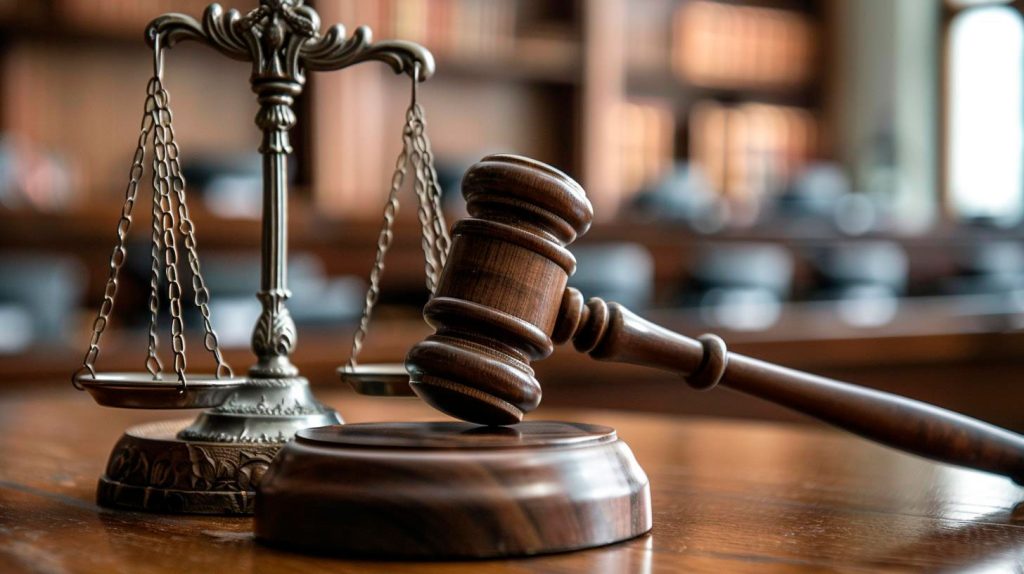
Monitoring Your Credit Score for Suspicious Activity
Being proactive in monitoring your credit score can help protect you from identity theft and fraud, ultimately safeguarding your financial stability.
Why Monitor Your Credit Score?
Monitoring your credit score regularly allows you to keep a close eye on your financial health. By doing so, you can quickly identify any unauthorized activity or errors on your credit report. According to a recent study by the Federal Trade Commission, identity theft is the top consumer complaint in the United States, with millions of Americans falling victim each year. By monitoring your credit score, you can detect any unusual patterns or discrepancies that may indicate fraudulent activity.
In addition to protecting yourself from identity theft, monitoring your credit score can also help you improve your financial habits. By keeping track of your credit score over time, you can see how your financial decisions impact your score. This can motivate you to make more responsible choices when it comes to borrowing and spending, ultimately leading to a healthier credit profile.
How to Monitor Your Credit Score
There are several ways to monitor your credit score, from utilizing free credit monitoring services to checking your credit report regularly. Many credit card companies now offer free credit score monitoring as a perk for cardholders. Additionally, you can request a free credit report from each of the three major credit bureaus – Equifax, Experian, and TransUnion – once a year through AnnualCreditReport.com.
It is important to review your credit report from all three bureaus, as errors or fraudulent activity may only appear on one report. Inaccurate information on your credit report can negatively impact your credit score, so it is essential to address any discrepancies promptly. By staying informed about your credit score and regularly checking your credit report, you can take proactive steps to protect your financial well-being.
The Benefits of Monitoring Your Credit Score
Monitoring your credit score offers numerous benefits, including early detection of identity theft, improved financial literacy, and peace of mind. By staying vigilant and monitoring your credit score for suspicious activity, you can minimize the risk of financial harm and take control of your financial future.
Remember, your credit score is a reflection of your financial health and responsibility. By monitoring it regularly, you can ensure that your credit profile accurately represents your creditworthiness. Stay informed, stay protected, and stay in control of your financial well-being.
Proactive Measures to Safeguard Your Credit Information
As a leading provider of lawyer services, we understand the importance of protecting personal data and have compiled a list of proactive measures to help you secure your credit information.
Monitor Your Credit Report Regularly
One of the most effective ways to safeguard your credit information is by monitoring your credit report regularly. By checking your credit report frequently, you can spot any suspicious activity or inaccuracies before they escalate into more serious issues. According to a recent survey, over 60 million Americans have experienced identity theft, emphasizing the importance of monitoring your credit report.
Set Up Fraud Alerts
Setting up fraud alerts with the major credit bureaus can provide an extra layer of protection for your credit information. Fraud alerts notify lenders to take extra steps to verify your identity before extending credit in your name, making it more difficult for identity thieves to open accounts in your name. Studies show that fraud alerts can help prevent identity theft and save you from potential financial losses.
Use Strong and Unique Passwords
Another proactive measure to safeguard your credit information is to use strong and unique passwords for your online accounts. Using weak passwords or reusing the same password across multiple accounts can make it easier for hackers to access your personal information. Research shows that over 80% of data breaches are due to weak or stolen passwords, highlighting the importance of using strong and unique passwords.
Enable Two-Factor Authentication
Enabling two-factor authentication adds an extra layer of security to your online accounts by requiring a second form of verification, such as a text message or fingerprint scan. Two-factor authentication can help prevent unauthorized access to your accounts, reducing the risk of identity theft. Studies have shown that two-factor authentication can significantly decrease the likelihood of a data breach.
Be Wary of Phishing Scams
Phishing scams are a common tactic used by cybercriminals to trick individuals into revealing sensitive information, such as credit card numbers or login credentials. To safeguard your credit information, be cautious of unsolicited emails or messages asking for personal information. Research shows that phishing scams are responsible for a large percentage of data breaches, highlighting the importance of staying vigilant online.
Secure Your Devices and Networks
Securing your devices and networks is essential to safeguarding your credit information. Make sure to install antivirus software, keep your operating system and apps up to date, and use secure Wi-Fi connections when accessing sensitive information. Studies have shown that insecure devices and networks are a common entry point for hackers, making it crucial to take proactive measures to secure your devices.
Protecting your credit information is vital in today’s digital landscape, where data breaches and identity theft are on the rise. By monitoring your credit report regularly, setting up fraud alerts, using strong passwords, enabling two-factor authentication, being wary of phishing scams, and securing your devices and networks, you can take proactive measures to safeguard your credit information. Remember, prevention is key when it comes to protecting your personal data.
For more information on safeguarding your credit information or legal assistance with identity theft cases, contact our team of experienced lawyers today.
Steps to Take if Your Identity is Compromised
Signs Your Identity May Have Been Compromised
There are several warning signs that may indicate your identity has been compromised. Some common signs include unauthorized transactions on your bank account or credit cards, receiving bills for services you did not use, and being denied credit or loans for no apparent reason. If you notice any of these signs, it is important to take immediate action to protect yourself.
Steps to Take if Your Identity is Compromised
- 1. Contact the Authorities: If you suspect your identity has been stolen, report it to the police and file a report with the Federal Trade Commission (FTC). This can help you establish a record of the crime and facilitate any investigations that may be necessary.
- 2. Notify Your Financial Institutions: Contact your bank and credit card companies to report the identity theft and freeze your accounts. This will prevent the thief from making further unauthorized transactions.
- 3. Monitor Your Credit Reports: Check your credit reports regularly to look for any suspicious activity. You can access your reports for free from the three major credit bureaus – Equifax, Experian, and TransUnion – once a year.
- 4. Update Your Passwords: Change the passwords to all of your online accounts, especially those that contain sensitive information such as banking or credit card details. Make sure to use strong, unique passwords for each account.
- 5. Place a Fraud Alert or Credit Freeze: Consider placing a fraud alert on your credit reports or even freezing your credit to prevent any new accounts from being opened in your name without your permission.
Benefits of Taking Immediate Action
By taking these steps promptly after discovering your identity has been compromised, you can minimize the damage and protect yourself from further harm. Identity theft can have long-lasting consequences, including damage to your credit score and financial stability. By acting quickly, you can mitigate these effects and restore your peace of mind.
Identity theft is a serious threat that can have far-reaching consequences for its victims. By being vigilant and taking proactive steps to protect your personal information, you can reduce the risk of falling victim to this crime. If you suspect your identity has been compromised, don’t hesitate to take action immediately to safeguard your finances and future well-being.
Remember, prevention is always better than cure when it comes to identity theft. Stay informed about the latest scams and fraud schemes, and take steps to protect your personal information both online and offline. By staying vigilant and proactive, you can reduce the risk of becoming a victim of identity theft and ensure your financial security.
Understanding Your Rights: The Fair Credit Reporting Act
Enacted in 1970, the FCRA aims to promote accuracy, fairness, and privacy of consumer information.
What is the Fair Credit Reporting Act?
The FCRA sets guidelines for how consumer reporting agencies (such as credit bureaus) can collect, use, and share your credit information. It also gives consumers the right to access their credit reports, dispute inaccuracies, and hold companies accountable for violating their rights.
Key Features of the Fair Credit Reporting Act
- Accuracy: The FCRA requires consumer reporting agencies to maintain accurate and up-to-date information in your credit report. If you find any errors in your report, you have the right to dispute them.
- Privacy: The FCRA limits who can access your credit report and for what purpose. Generally, only companies with a valid reason, such as lenders and employers, can access your credit information.
- Transparency: The FCRA gives you the right to request a free copy of your credit report from each of the major credit bureaus (Equifax, Experian, and TransUnion) once every 12 months. This allows you to monitor your credit and detect any potential fraud.
- Security: The FCRA requires consumer reporting agencies to take steps to protect your personal information from unauthorized access and misuse.
- Fairness: The FCRA sets rules for how consumer reporting agencies and creditors must handle disputes and investigations into inaccuracies on your credit report.
Benefits of Knowing Your Rights under the FCRA
By understanding your rights under the FCRA, you can protect yourself from identity theft, inaccurate credit reporting, and unfair treatment by creditors. Here are some benefits of knowing and exercising your rights:
- Improved Credit Score: By monitoring your credit report for errors and disputing inaccuracies, you can ensure that your credit score reflects your true creditworthiness.
- Identity Theft Prevention: Regularly checking your credit report can help you spot signs of identity theft early and take action to prevent further damage.
- Legal Recourse: If a consumer reporting agency or creditor violates your rights under the FCRA, you may be entitled to damages and legal recourse.
- Financial Security: Protecting your credit report and monitoring your credit can help you maintain financial security and access to credit when you need it.
Statistics on Credit Reporting and Identity Theft
According to the Federal Trade Commission, identity theft was the second most reported category of consumer complaints in 2020, with over 394,000 reported incidents. Monitoring your credit report regularly can help you detect and prevent identity theft before it causes serious financial harm.
Additionally, a study by the Consumer Financial Protection Bureau found that one in five consumers had errors on at least one of their three credit reports. By being proactive about checking and disputing inaccuracies on your credit report, you can avoid potential negative impacts on your credit score and financial well-being.
Understanding your rights under the Fair Credit Reporting Act is essential for protecting your financial security and ensuring the accuracy of your credit information. By staying informed and taking action to correct any errors, you can maintain control over your credit report and prevent potential issues down the line.












So, if our credit scores get messed up by identity theft, can we sue the credit reporting agencies for not catching the fraud sooner?
Hey peeps, what are some common signs that our credit scores might have been affected by identity theft?
Can someone break down the laws around credit score protection for me? It’s all so confusing!
Man, I’ve been hearing a lot about identity theft lately. Can someone explain what legal rights we have when it comes to protecting our credit scores?
Can our credit scores be permanently damaged by identity theft? What are our legal options if that happens?
What are some common misconceptions about our legal rights when it comes to protecting our credit scores from identity theft?
Can we sue someone if they mess with our credit score through identity theft?
Yo, I need some advice on what to do if I suspect that my credit score has been compromised. Any legal steps I can take to fix this situation?
Hey everyone, I’ve been hearing about credit freezes as a way to protect our credit scores. Are these legal? Do they actually work?
OMG, I just found out that someone stole my info and messed with my credit score. What can I do to fix this mess legally?
Hey guys, I’ve been thinking about getting identity theft protection services. Are these legal? Do they actually work to protect our credit scores?
Can someone explain the legal process for disputing errors on our credit reports caused by identity theft?
Hey y’all, I heard that our credit scores are pretty important for things like getting loans and renting apartments. Anyone else know how we can protect our credit scores from identity theft?
Hey everyone, I’m looking for some info on the legal rights we have to protect our credit scores from identity theft. Any lawyers in the house who can help me out?
Yo, I’m pretty worried about my credit score. I heard identity theft can mess it up real bad. Any tips on how to keep our credit scores safe?
Hey peeps, what are some good legal resources we can use to protect our credit scores from identity theft?
So, if our credit scores get messed up due to identity theft, what are the legal remedies available to us?
What kind of evidence do we need to prove that our credit scores were affected by identity theft?
What are some common mistakes people make when trying to protect their credit scores from identity theft?
Hey guys, I know we gotta watch out for identity theft, but what are some specific steps we can take to prevent it from affecting our credit scores?